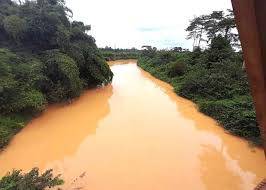Ghana Water: Expensive but Dirty, Impacted by Galamsey
Ghana Water: Dirty but expensive
Ghana, known for its rich natural resources, faces a critical challenge in ensuring clean and affordable water for its population. The issue is exacerbated by illegal mining activities, commonly referred to as “galamsey,†which have severely contaminated water sources across the country.
Water is essential for life, health, and economic development. In Ghana, however, access to clean water remains a pressing concern. Despite significant investments in water infrastructure, many communities still struggle with the dual issues of water affordability and quality. The government has made strides in providing potable water, yet high costs often make it inaccessible for low-income households. Many Ghanaians are forced to rely on unsafe water sources, leading to various health problems.
The galamsey phenomenon, where individuals engage in small-scale, illegal mining, has become a significant contributor to water pollution in Ghana. These mining activities often occur in river basins and watersheds, where toxic substances like mercury and cyanide are used to extract gold. The runoff from these operations contaminates rivers and streams, which are vital water sources for many communities. This pollution not only poses serious health risks but also damages aquatic ecosystems.
Reports indicate that nearly 80% of Ghana's water bodies have been contaminated due to galamsey. Rivers like the Pra and the Ankobra have been heavily affected, with their waters turning brown and murky due to sedimentation and chemical runoff. As a result, water treatment processes become more complex and costly, further driving up the price of clean water. Water treatment facilities struggle to cope with the increased levels of pollutants, leading to higher operational costs that are ultimately passed on to consumers.
The economic impact of galamsey on water resources is profound. The increasing cost of water treatment translates to higher utility bills for households and businesses. Many people are left choosing between paying for water and other basic necessities, leading to increased poverty and health issues within affected communities. Moreover, the strain on water supply systems can lead to water shortages, affecting agriculture and livelihoods, particularly in rural areas where farming is predominant.
Efforts to combat galamsey have been met with mixed results. The Ghanaian government has implemented policies and initiatives aimed at regulating illegal mining, including increased enforcement and community education programs. However, these measures often face challenges such as corruption, inadequate resources, and the deep-rooted economic dependence of many communities on mining activities.
For sustainable solutions, a multifaceted approach is needed. Strengthening law enforcement against illegal mining, coupled with alternative livelihood programs, can provide communities with sustainable income sources. Investment in water treatment technology is also crucial to enhance the capacity of facilities to deal with contamination. Furthermore, public awareness campaigns can help educate citizens about the importance of protecting water resources and the long-term impacts of galamsey.
In conclusion, Ghana’s water crisis highlights the urgent need for effective governance and community engagement to address the dual challenges of water affordability and contamination. Tackling galamsey is not just an environmental issue; it is vital for the health and economic well-being of millions of Ghanaians. Without concerted efforts, the struggle for clean water will continue, exacerbating poverty and health crises in the country.




No comments yet
Be the first to share your thoughts!